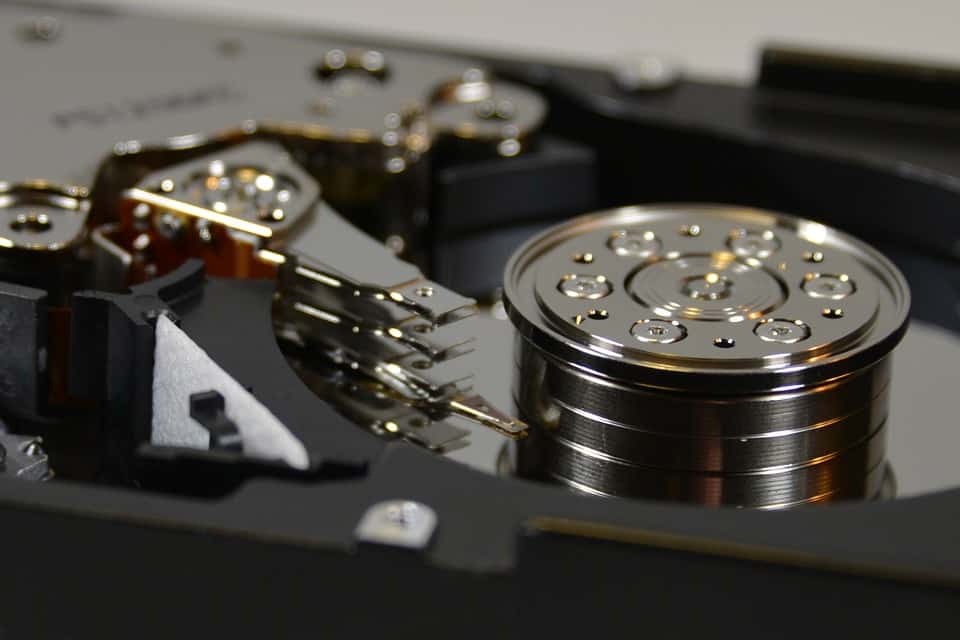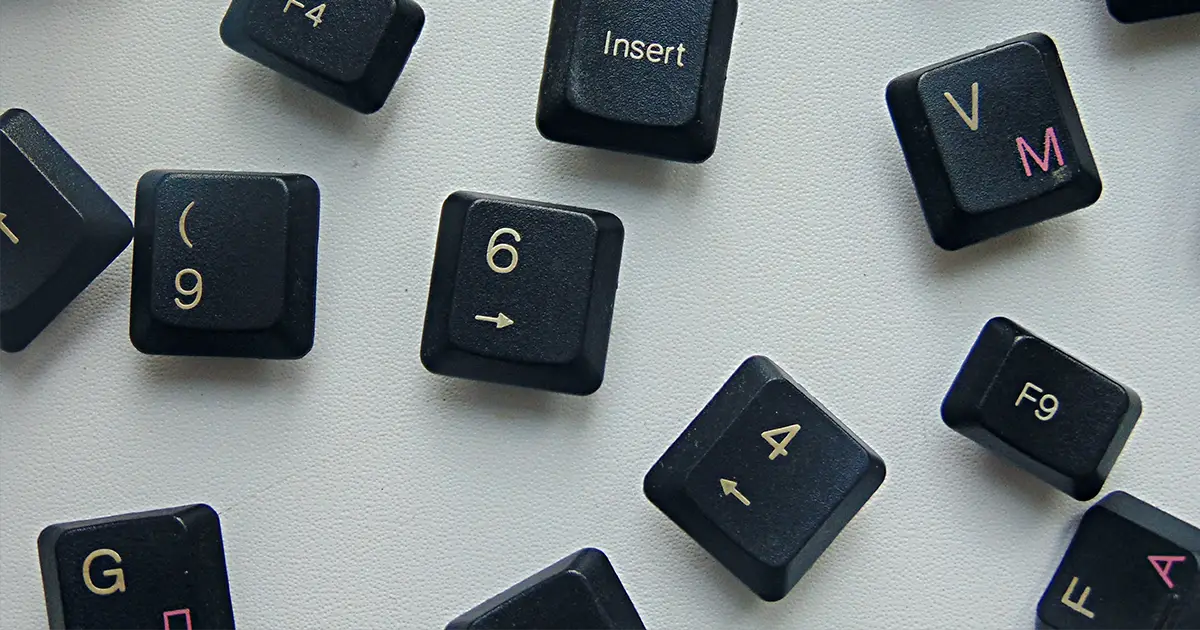Hard disk drives are a traditional device best known for storing huge amounts of bulk data. Whereas, the solid-state drive is a newer incarnation of storage allowing for a similar storing capacity alongside much higher speeds.
When it comes to technology, it is no wonder that the latest often wins the race. Solid state drives have started dominating the market shares rapidly with their superior features.
However, no device comes without its pros and cons. Like HDDs, SSDs also have their positive and negative aspects. A thorough comparison between these two storage technologies can lead to a conclusive idea about the supremacy of either variety.
The following is an in-depth comparison of HDD vs SSD technology that allows for an insight into the various aspects associated with the use of each type of storage.
Speed Comparison
Have you ever waited ages to transfer a very large file from your computer to a hard disk drive? Well most of us face this situation on a daily basis. It’s monotonous and boring and you have to find something to do in order to occupy that time.
In today’s world, no one has time to spare and everyone prefers applications and devices that are fast. If you are not ready to test your patience, you will need a system that works faster while copying or writing files from a source to storage.
Copying the files can be of two types. You can either copy large files as stated above or small ones that are involved with the opening of applications, browsers and games. Although both the varieties appear to be much different, the response of the storage devices remains similar. If you are using a HDD for these transfers, the average time taken would be twice that of a SSD.
On average, the speed of transferring data to an HDD remains around 30-150 MB per second. This varies on the quality and age of the hard disk drive. Expensive HDDs can have a faster transfer rate, but be prepared to pay a hefty premium for quality drives.
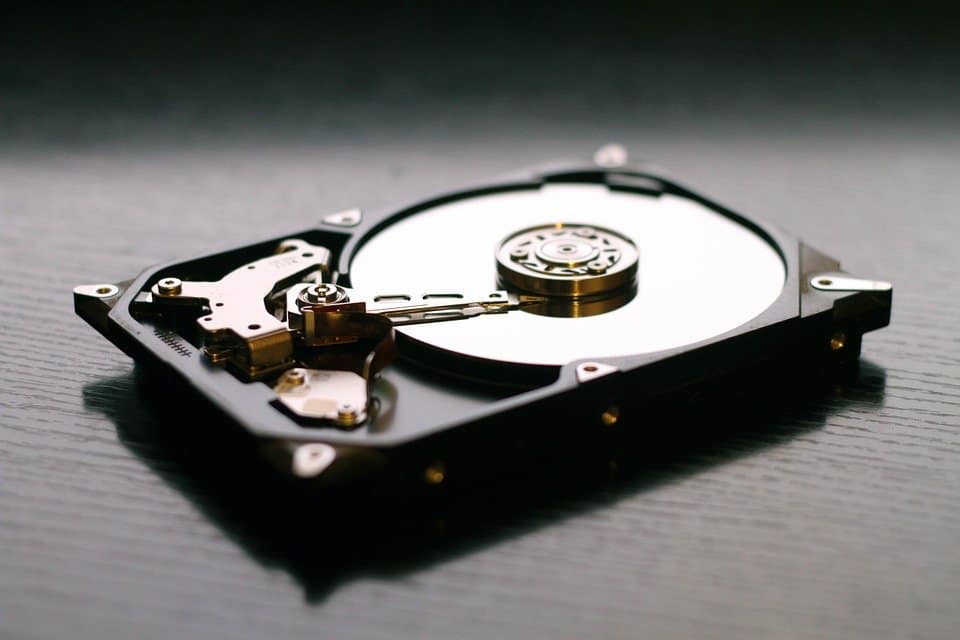
On a SSD, the speed of transfers can reach speeds of up to 500 MB per second. This also applies to a collection of smaller files. This trend remains unaltered proving SSDs to be much faster than HDDs. With the latest NVME SSDs, the speed sometimes reaches 3000-3500 Mb per second while copying large files.
In conclusion, an SSD is always the better choice over HDDs when it comes to file read and write speeds. This is why it is common practice to get an SSD just to install your operating system and the few crucial applications you use most often on it. Your computer will boot up faster and your favorite applications will start faster in comparison to a hard disk installation.
Lifespan Comparison
When you purchase a device or storage, the worth of your investment remains dependent on its lifespan. Therefore, analyzing the expected lifespan of SSD and HDD is of paramount importance as both allow writing seamlessly.
According to the general perceptions that emerged during the early days of SSDs launch in the later half of the 20th century, SSDs write more and die faster. It is a common conception that if a drive writes faster, then it also wears out faster. But as a matter of fact, the same is not the scenario today.
Owing to the presence of wear leveling mechanism in SSDs, they survive for a long time even after writing at a fast pace. Wear leveling is a process through which the distribution of the write operations is done evenly across the data cells. This, in turn, guarantees a slower death of the cells.
The latest SSDs come with the advantage of spare cells. This helps in replacing the worn-out cells to keep the SSDs in good health for longer.
Hence the larger the SSD, the longer its lifespan will be as it contains more spare cells. According to records and statistics, newer SSDs can survive seamless writing for decades before dying out.
However, when it comes to the lifespan of HDDs, the average lifespan varies from 3 to 4 years. That is considerably lower than that of the new generation SDDs.
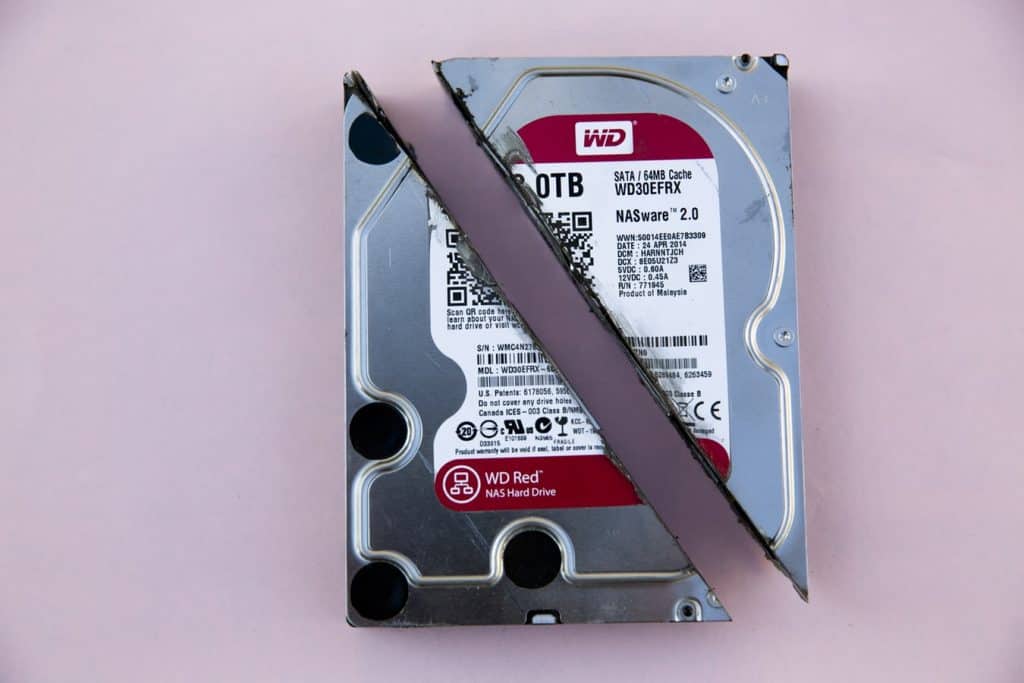
Solid-state drives get their name because of the solid build structure. It has no moving needle inside of it that might cause problems. This makes it more durable and less prone to damage.
A hard disk drive contains a rotating needle which can damage the components if shaken or moved while in operation. Although this is usually not an issue when mounted in a computer case, it is good to take this factor into consideration.
A way to counter the dying of a HDD is to buy multiple of them and create a RAID formation. This way you can ensure your data won’t be lost even if one of the drives die. Although a costly solution, it can be worth it if you have a lot of crucial data to store.
In conclusion, if you are looking for a long term storage technology alongside the speed, you should definitely go for a solid-state drive. It will cost you more for less storage space. However this way you can ensure that it will stay in operation for many years to come. A hard disk drive will grant you a lot more storage room, but will die out a lot faster.
Capacity Comparison
The primary objective of purchasing or using storage is to keep the maximum amount of data stored at one time. Therefore the ultimate value of any storage device depends on the capacity to store data. When it comes to selecting the best storage between an HDD and SSD, the task can be confusing at first.
Both varieties of storage offer almost similar maximum capacities. You will find SSDs ranging from 128 GB to 2 TB capacities while some expensive hard disk drives can boast up to 10 terabytes of storage space. So generally speaking, there won’t be a huge difference in the maximum capacity of a storage device in the end. The biggest difference arises with pricing.
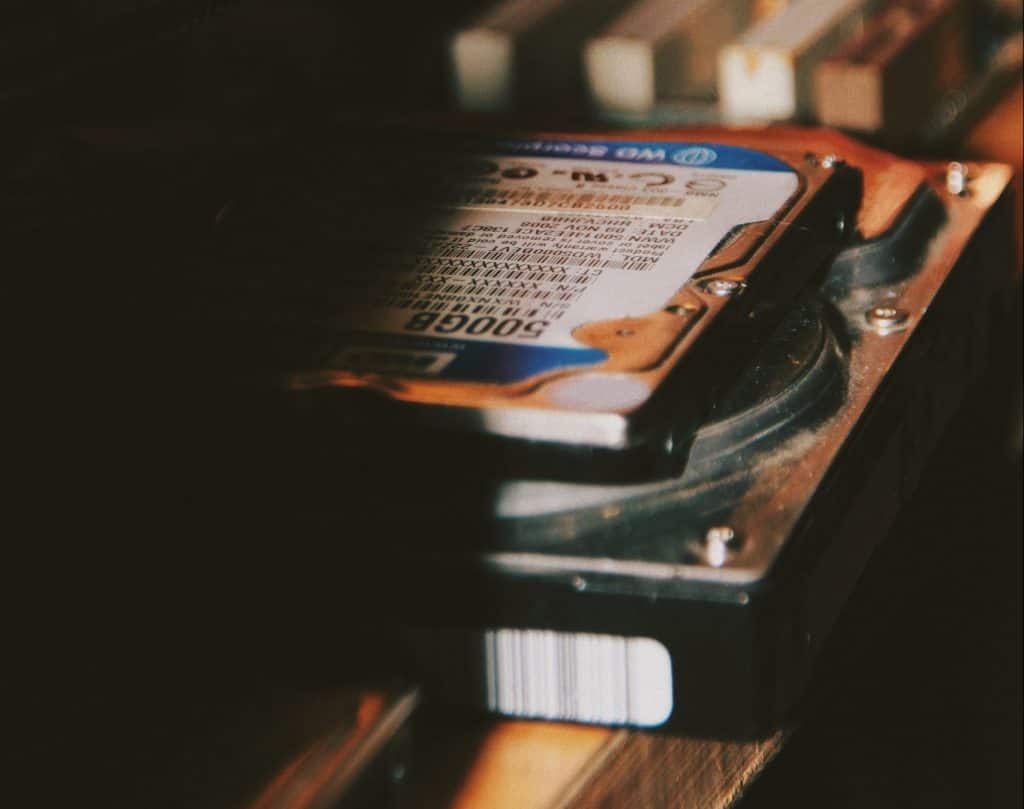
The same storage capacity for these two types of storage devices comes at very different price points. A high quality SSD can cost more than double in comparison to a HDD. This is why you need to consider what quantity of data you’re planning to store on the drive.
In conclusion, as far as the capacity is concerned, both the devices show similar potential. However, if you’re looking to use the drive mainly as data storage for things like movies or images, you will get a lot more room with an HDD.
However if you need to run applications or games off the drive, you’re better off with a high performance SSD. This way you will notice a significant increase in performance across all your applications.
Price Comparison
The general price trends of any electronic product follow a standard rule. When any product is launched in the market as a new innovation, the overwhelming demand of the market automatically shoots up the prices.
In turn it later subsidies as the customers become accustomed to the use of the product and start showing more reasonable attitude towards purchasing it. Thus, the demand-supply components get stabilized making the prices lower than the initial levels.
The same has been true for solid-state drives. When they were initially launched, the prices were considerably higher than the popular HDDs. However, over the years, SSD prices have gone down considerably to match the price level of the HDDs reasonably.
Though SSDs are at a higher price point than HDDs, the price difference has dwindled significantly. Currently, HDDs with a capacity of 500 GB are priced anywhere between $25 to $50 depending on the technical specifications of the drive. However, an SSD of the same capacity will cost you around $60 to $150 based on its specifications and manufacturer.
A recent price study has revealed that the movement of HDD price largely depends on the demand-supply dynamic, while the price of SSDs has a more stable trend. Before making a purchase, make sure to consider all the other factors mentioned here to see which price point will provide you with the most value.
In conclusion, hard disk drives will provide you with a lot more storage capacity with the cost of performance. A solid-state drive will provide you with significantly higher read and write speeds alongside a longer lifespan, but at a higher cost.
HDD vs SSD for Gaming
File read speeds can be a real game-changer when it comes to choosing storage that supports gaming adequately. If you’re an avid gamer and need to get the most performance out of your games, you need to consider a few factors.
We made a full guide discussing the specs and features of an SSD explaining what makes it so special.
Would you settle for storage that will take a full minute to load a single level of the game or 10 seconds instead? Surely, the latter would be a preferred choice for anyone. Hence, SSDs always remain the first choice for gamers. The HDD loses the battle of speed by a considerable margin. This is what makes SSDs the best choice for any gamer.
Gaming requires constant reading and writing of tons of files. Games consist of loading levels, character models, textures etc. This is why the storage supporting the data must be fast and efficient enough to manage multitasking without compromising on speed. This is why so many choose to use SSDs for gaming purposes.

Issues arise when technology advances and games become larger and larger in size. Nowadays it is completely normal for a game to be over 100 GB in size. You will soon realize that installing two large games will have completely filled up your new solid-state drive.
Some people prefer the massive storage sizes of hard-disk drives so they can store their giant game libraries in one place. Sometimes you might need to compromise on some performance to have more options.
Verdict: If you mainly like to play a few games or need to have the competitive edge on a few of your favorite titles, get an SSD and install those games on it. You can always use a separate hard disk drive for the larger game installations. This way you can still maintain a healthy selection of games to choose from.
Check out our tips on how to buy a proper gaming monitor to get more use out of your new speeds.
HDD vs SSD in Laptops
There are laptops on the market with SSDs as well as HDDs. Which one would be the smartest choice depends largely on your budget and requirements. When looking for a laptop with a lower budget, a HDD will reduce the cost of the laptop significantly. This will come at a slight hit to performance as well as the size and weight of the device.
However, when looking for a multi-tasking machine with speed, opt for the SSD laptops that offer high speed along with decent storage capacity. Also, the chance of damage is higher for HDDs than SSDs as the latter is shock-resistant, unlike the former one. SSDs require less power to perform and thus save the battery life of the laptop. An SSD is also significantly thinner which allows for a sleek form factor for the laptop.
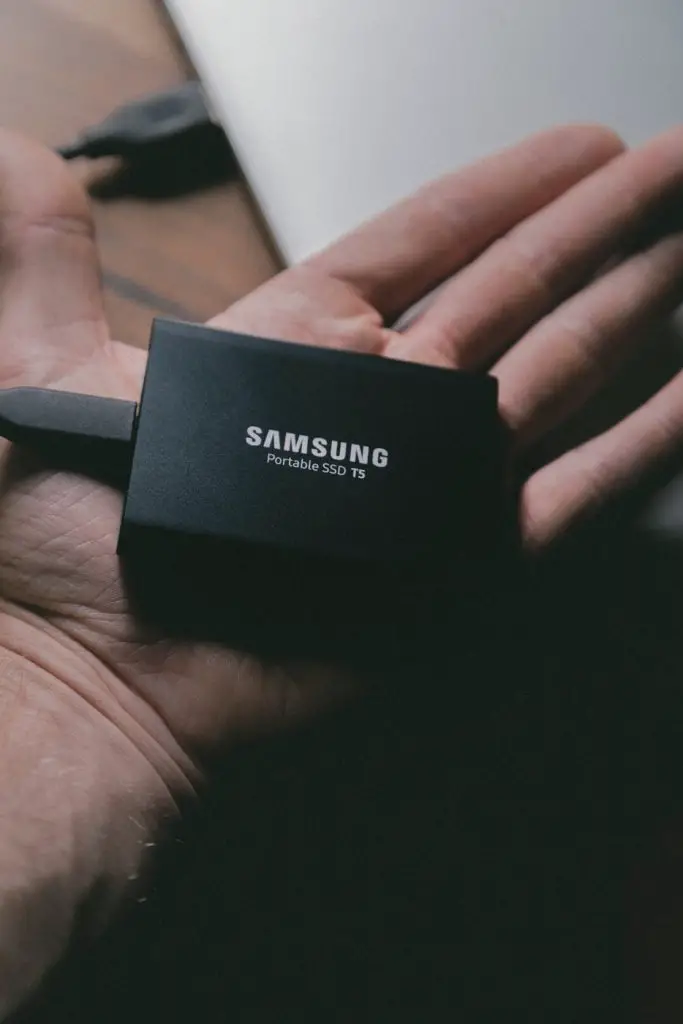
In conclusion, we highly recommend to get a SSD equipped laptop for many reasons. They’re lighter, more durable and perform more efficiently. The downside is obviously the cost and limited storage space. You can counter this issue by getting an external hard disk drive.
Make sure that you choose the right storage for your needs and invest your money to buy the best option available. The choice between HDD and SSD can be made easily by considering all the mentioned factors. However, personal preference and requirements can never be overlooked when deciding between the two.
However, as final words, the suggestion will always remain inclined towards SSDs without neglecting the benefits of HDDs. They have served the market so far with grace and adequacy.
